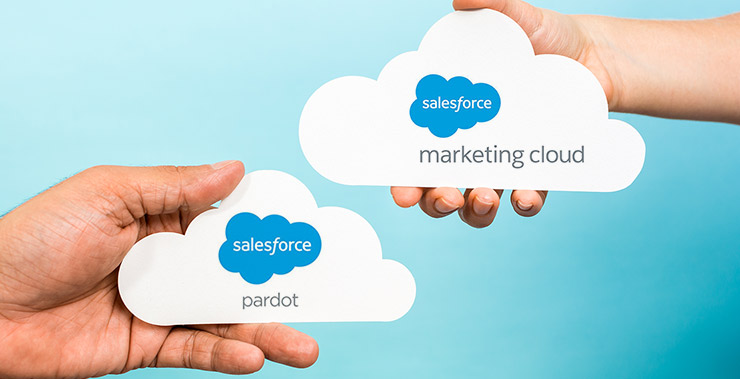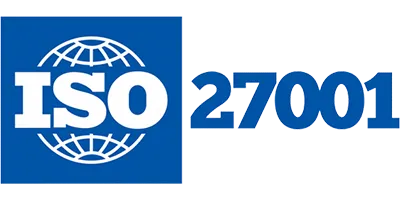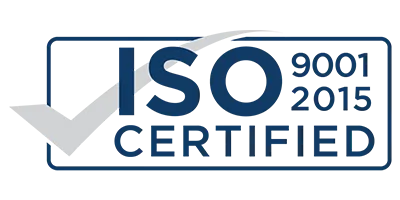Salesforce is the world’s number one CRM platform. It is known for offering superlative cloud computing solutions to its clients across the world. Salesforce has designed a wide range of products to deliver top-notch solutions to businesses for their growth and to help them acquire good customer relationships.
Among all products, the two most important ones are the marketing cloud and Pardot.
Both the tools have a lot in common; they both are automation tools and perform great as a digital analytics platform. People often get confused when it comes to choosing the right set of platforms for marketing automation.

Therefore, we are here with this post to help you understand the major difference between Salesforce Marketing Cloud and the Pardot platform. After reading this blog you would be able to make an informed decision on choosing the right marketing automation tool.
What is Marketing Cloud?
It is a marketing automation system that helps digital marketing professionals to build and manage strong relationships with prospects and with the existing ones.
You can easily map every stage of the customers’ journey, including any specific experience during the journey. One of the best parts of this platform is that it incorporates integrated solutions across various platforms such as mobile, website, email, social media, and many more.
With the help of the Salesforce marketing cloud, one can get an illustrious customer journey across multiple channels and devices. You can help your prospects become a customer by creating a one-to-one personalized experience.
Features of Marketing Cloud
The brilliance of this platform is that it is compact with numerous ultimate features that fuel your market strategies and drive maximum growth to businesses. Some of the important features of Marketing cloud are as follows:
- Journey builder to create one-to-one customer journeys across multiple channels.
- Email studio to create and send personalized email campaigns
- Audience studio to capture prospects’ data from multiple sources to a single platform.
- Mobile studio to personalize mobile interactions like chat, SMS, etc.
- Social studio to connect with customers across social media channels.
- Advertising studio to use one-to-one targeting to re-engage with customers, using CRM data.
- Dataroma tool to access all marketing data, KPIs, etc. from one platform.
- Interaction studio to visualize, track, and manage real-time customer experience.
- Data studio works as a premium data ecosystem.
Benefits of Marketing Cloud for Businesses
- Connect data from multiple sources and deliver a unified view of each customer via singer dashboard.
- Drive growth by reaching new audience segments.
- Businesses can engage with customers across the entire journey.
- You can unify the data sources, get personalized on every channel, engage with customers at any stage of a journey, can analyze campaign performance for B2C and B2B customers.
- You can analyze the effectiveness of marketing strategies across multiple channels and devices with the help of Artificial Intelligence technology.
What Salesforce Pardot?
Pardot is known for its superlative lead management and long-term nurture functionalities. It is a B2B email marketing automation platform that empowers marketers to track website visitors, their level of interaction using cookies, and to nurture leads through personalized email campaigns.
Known as an ideal B2B specialist, Pardot is easy to implement. You can connect with any CRM solution provider company and experience easy Pardot implementation services.
The platform works best with Salesforce Sales cloud and suits best for businesses with account-based selling. Another significance of Pardot is that it helps you create highly personalized drip marketing campaigns based on the behaviour of the website and the interactions it triggers.
Features of Pardot Solution
According to a survey, the companies who have gone for Pardot implementation services experienced a 40% rise in their marketing efficiency. This smart and result-driven B2B marketing platform is compact with such features that can help you powerfully increase revenue and improve efficiency.
Here are the most popular features of the Pardot platform:
- Engagement studio to visualize your email drip campaigns.
- Salesforce connector that helps you design multiple functions (add/remove list, tags, assign a user to a group, notify users, etc.) to execute efficient email marketing automation.
- Connected campaigns to combine Salesforce campaign and Pardot campaigns to streamline their management, and to improve campaign reporting quick and easy.
- B2B Marketing Analytics is a feature that combines sales and marketing data in one place and gets insights on marketing performance.
- Salesforce User Sync feature by Pardot helps manage Salesforce and Pardot users, improve user experience, and enhance security.
- Through the Dynamic Content feature, users will get personalized copies of landing pages, emails, website forms, etc.
Benefits of Pardot Implementation
- Pardot gives relevant data from Salesforce CRM along with SEM and SEO information that will help you build intelligent and targeted campaigns.
- You can effectively visualize and understand your campaign performance with the help of analytics and reporting tools.
- Businesses can simplify lead management and get a smarter lead generation.
- The strong marketing analytics by Pardot help you explore your marketing and sales data, give an insight into your campaign performance, and help you take data-driven actions.
Marketing Cloud Vs Pardot: Which is The Right Tool For You?
Do you ask your colleagues, which marketing automation tool is better, Salesforce marketing cloud or Pardot? Do you get confused to choose in between marketing cloud consulting and Pardot implementation services?
Here’s the answer to all your queries. Below we have discussed the difference between both the platforms in such a way that you can make a well-informed decision when you hire a Salesforce consulting company to integrate either platform.
|
Factors |
Marketing Cloud |
Pardot |
|
Marketing Automation for | B2C businesses | B2B businesses |
|
Target |
Lead nurturing/ lead generation |
One-to-one customer journeys/content management |
|
Pricing |
Based on customers’ individual needs. The price depends on the company’s size, industry, etc. |
It has 4 pricing plans. Billed annually. ● Growth – $1250/ month ● Plus – $2500/month ● Advance – $4000/month ● Premium – $15000/month |
|
Integrations |
● Web trends ● Pipeline CRM ● Coremetric ● Grow ● TapClicks ● HubSpot Marketing Hub ● Mention |
● Google Analytics ● Bit.ly ● UserVoice ● Twilio ● Google Ads ● WordPress.org Sites ● Tracking Search Keywords |
|
Language Supported |
English, Spanish, French, Italian, Dutch, Portuguese, Swedish |
English |
|
Significant Clientele |
Sony, Philips, Unilever, Vodafone |
Coca Cola Enterprises, Financial Times, Unilever |
|
Device Supported |
Windows, Android iPhone, Mac, Web-Based |
Windows, Mac, Web-Based, Linux, Android, iPhone, iPad |
|
Support Services |
Email, Phone, Tickets, Training |
Phone, Training, Tickets, Live Support |
|
Industry Serve |
Retail, FMCG, Health & beauty, travel, etc. |
Not specific |
|
Skills Required |
Certified Marketing Cloud Consultants, Certified Marketing Cloud Email Specialist Certified Marketing Cloud Developer |
Pardot Specialist Certification Pardot Consultant Certification |
Some General Differences Between Marketing Cloud and Pardot
Before you go to a Salesforce consulting company, it is necessary to have all kinds of information related to these two marketing automation platforms. It will help you make the right decision.
To simply put, the marketing cloud is a B2C marketing automation solution, whereas Pardot is for B2B companies.
The power of the marketing cloud lies in social media marketing and SMS campaigns that improve business to customers relationships. On the other hand, Pardot boosts B2B marketing and offers great capabilities in the area of marketing and sales management, lead management, automated actions, and many more functions.
Conclusion
Both Salesforce Marketing Cloud and Pardot are brilliant marketing automation platforms that stand best at their respective places. Businesses have to analyze their requirements before making any decision or before they hire Salesforce consulting services.
There are several Salesforce consulting providers. You can connect them to hire Salesforce developers and deploy their expertise. They will make sure that you keep your data sync across all your Salesforce platforms and other business tools so that your sales and marketing teams work with the latest, and up-to-date & accurate data (customer info) all the time.








